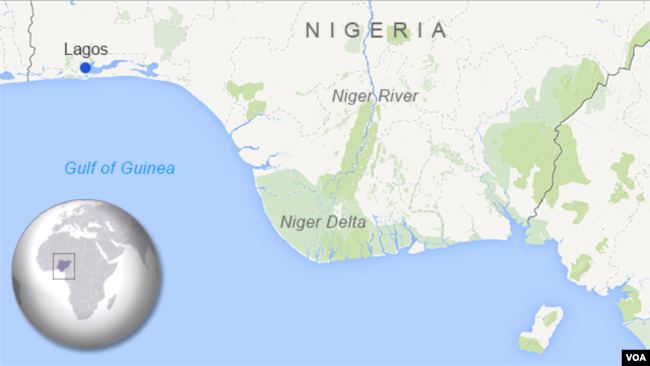
ABUJA — Nigerian President Muhammadu Buhari opened the first oil drilling site in the country’s north Tuesday, saying it will bring energy security and economic development.
The fresh source of oil comes as Nigeria’s production ranking has dropped from Africa’s top spot due to the theft of oil in the Niger Delta. Nigeria’s state oil company said the northern Kolmani fields could hold as much as 1 billion barrels of oil, but analysts question whether locals stand to benefit.
The Kolmani River Field is located between Bauchi and Gombe states in northeastern Nigeria – a region that has been battling Islamist militants for years.
It’s the first time Nigerian authorities have turned to another source of crude oil outside the Niger Delta region. Crude oil was first discovered there by the privately operated NNPC Limited in 2019.
President Buhari said at the launch Tuesday the Kolmani River Field holds up to 1 billion barrels of oil reserves, about 14 billion cubic meters of gas.
The president said the new project will include upstream production, oil refining, power generation, and fertilizer production. He said it already has attracted three billion dollars’ worth of investment.
Buhari spoke in a televised broadcast during the launch.
“This discovery had emanated from our charge to NNPC to re-strategize and expand its oil and gas exploration footprints. Similar activities across the other basins are currently actively ongoing,” he said.
The project is expected to produce up to 50,000 barrels of crude oil per day.
Buhari said the project will benefit locals through job creation, energy security, financial security and community development.
Nigeria now ranks seventh on the Organization of the Petroleum Exporting Countries’ crude oil production list, according to the group’s November oil market tally.
Authorities blame massive theft in the Niger Delta region for the decline and have been trying to boost production.

Emanuel Afamia, the founder of Enermics Consulting Limited, said past mistakes made in the Niger Delta region must be avoided this time around.
“The government should have learned from that and then be able to provide or create an enabling environment for people residing in that community to actually earn a living. They have to provide the infrastructure that would make it such that the drilling activities in that area will not affect the source of living of the people,” said Afamia.
Afimia said the new drilling project needs more investment to be able to contribute significantly to Nigeria’s oil output.
“We’ve discovered a new site but then, what really is the plan for developing it? What really is the plan for building infrastructures necessary for producing oil in that place? The access to finance plays a huge role in this,” said Afimia.
Another oil and gas analyst, Toyin Akinosho, said success includes thinking about how oil production can benefit people.
“If we just think in terms of compensating, not just about money but also engaging communities ensuring that people have access to basic health care, education, that’s already a very treasured land where they’re sitting on, so they shouldn’t be living in penury; it doesn’t matter if it is in Delta or the northeast,” said Akinosho.
Nigeria is hoping to achieve net-zero emissions by 2060 using gas as a transition fuel.
Buhari has urged NNPC Limited and its partners to ensure harmonious relationships with host communities.
Source: https://www.voanews.com/
